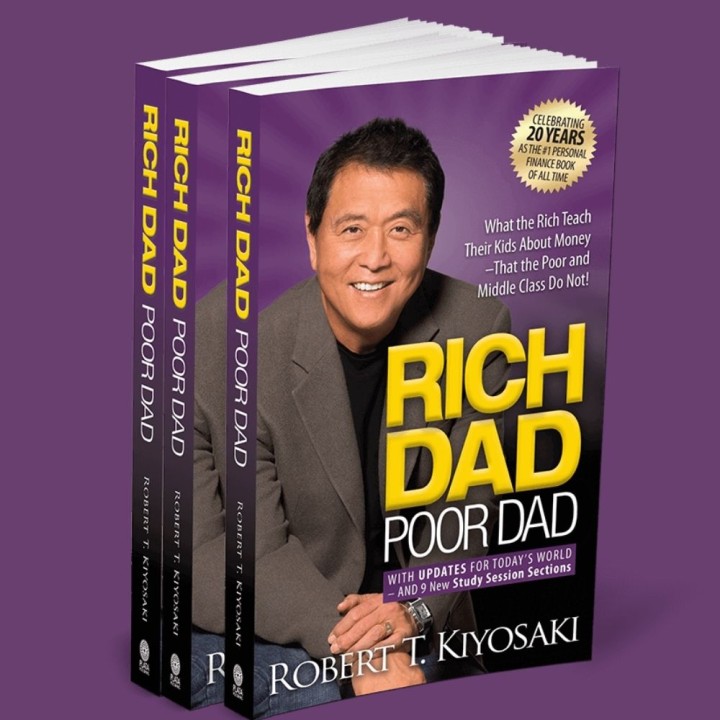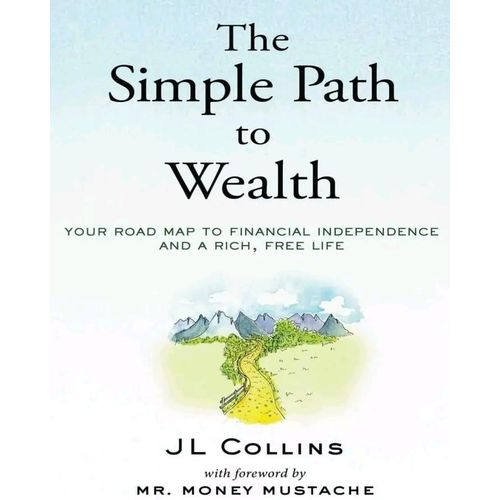Money is a topic everyone thinks about, but few truly master. For some, it feels like a constant uphill battle: bills pile up, salaries never stretch far enough, and dreams of financial independence seem like just that—dreams. But here’s the thing: financial success isn’t about luck. It’s about learning proven strategies, shifting your mindset, and applying timeless lessons. One of the best ways to start? Books.
Books on money aren’t just about dollars and cents. They’re about mindset, habits, and understanding the psychology of wealth. Think about it: Warren Buffett spends five to six hours a day reading. Bill Gates claims to finish about 50 books a year. These aren’t hobbies—they’re habits of billionaires. If reading has this much impact on the world’s wealthiest people, it’s worth taking seriously.
So, what are the 10 books to read to help you improve your finances? That’s what we’re diving into today. These books don’t just teach you about money. They challenge the way you think about earning, spending, and investing. Some are practical, some are motivational, and others are unconventional. Together, they form a roadmap anyone can use to move closer to financial freedom.
Let’s get started.
1. The Millionaire Next Door by Thomas J. Stanley, Ph.D.
When you picture a millionaire, you might think of flashy cars, designer suits, and mansions in gated communities. But Stanley’s research proves otherwise. The majority of millionaires in America are far from flashy. They live in modest neighborhoods, drive regular cars, and quietly accumulate wealth.
Stanley and his co-author William D. Danko conducted surveys of millionaires and uncovered a pattern: wealth isn’t about how much you earn—it’s about how much you keep. That single lesson flips conventional wisdom on its head. Many high earners end up broke because they overspend, while disciplined savers quietly grow rich.
Real-life example? Sam Walton, founder of Walmart, was once one of the richest men in the world. Yet he drove an old Ford pickup and lived modestly compared to his peers. Walton embodied the very principles Stanley wrote about: frugality, discipline, and long-term thinking.
This book is a wake-up call. It tells you that financial success is about small, consistent choices. If you want a clear roadmap for living below your means and building wealth, this is it.
2. Rich Dad Poor Dad by Robert T. Kiyosaki

Robert Kiyosaki’s Rich Dad Poor Dad is probably the most famous personal finance book ever written. Love it or hate it, you can’t deny its impact. The book contrasts two father figures: Kiyosaki’s biological father (“Poor Dad”), who worked hard but never achieved financial independence, and his friend’s father (“Rich Dad”), who taught him about money, investing, and entrepreneurship.
The book’s main idea is simple: assets put money in your pocket, liabilities take money out. Most people confuse the two. Buying a big house might feel like an asset, but if it drains your cash flow every month, it’s actually a liability.
Kiyosaki’s emphasis on financial education is another big takeaway. Schools rarely teach kids about money, taxes, or investing. That gap leaves millions financially vulnerable. Kiyosaki argues that real wealth comes from learning outside the classroom.
One powerful lesson is that the rich focus on acquiring assets—things like businesses, real estate, and stocks—while the poor and middle class focus on working harder at jobs. If you want to shift your mindset and start thinking like an investor, this is the book for you.
3. The Power of Broke by Daymond John
Daymond John, the founder of FUBU and a star on Shark Tank, knows what it’s like to start with nothing. In The Power of Broke, he flips the script on what most people consider a disadvantage. Instead of seeing lack of money as a limitation, John argues it can be a source of creativity, hunger, and drive.
When you’re broke, you’re forced to think outside the box. You don’t have the luxury of throwing money at problems. You find scrappy solutions, build grit, and maximize limited resources. John shares his own story of sewing FUBU hats and selling them on street corners before building a billion-dollar brand.
What makes this book stand out is the blend of storytelling and practical advice. John includes stories of other entrepreneurs who started with little but built empires: people like Steve Aoki, who turned his small music gigs into a global career.
If you’ve ever thought, “I can’t start because I don’t have enough money,” this book will dismantle that excuse.
4. Your Money or Your Life by Vicki Robin & Joe Dominguez
At some point, you’ve probably asked yourself: “Am I working to live, or living to work?” That’s the central question in Your Money or Your Life. Robin and Dominguez challenge readers to redefine their relationship with money.
The book introduces the concept of “life energy.” Every time you earn money, you’re exchanging hours of your life for dollars. If you spend mindlessly, you’re essentially trading precious life energy for things you don’t need. That realization alone has helped thousands of readers cut unnecessary expenses and rethink consumption.
One of the most impactful exercises in the book is tracking every dollar you spend. It’s tedious, yes, but it reveals patterns you’d otherwise miss. Do you really want to spend 20 hours of your life paying for subscription services you rarely use? Probably not.
The book’s nine-step program has helped people get out of debt, save more aggressively, and ultimately reach financial independence. For anyone craving not just wealth, but freedom, this is essential reading.
5. The Inner Game of Tennis by W. Timothy Gallwey
At first glance, this doesn’t look like a finance book. It’s about sports psychology and performance. But here’s the kicker: Gallwey’s insights about mastering your inner game apply directly to money.
Financial decisions are emotional. Fear, greed, and doubt drive markets more than logic. Gallwey explains how self-doubt sabotages performance and how to quiet that inner critic. Replace “tennis” with “investing” and the lessons hold.
For example, think about the stock market. When it crashes, panic sets in. People sell low instead of holding steady. Why? Because their inner game is weak. They let emotions override strategy. Gallwey’s methods teach you how to trust your process, stay calm, and play the long game.
This book shows that financial success isn’t just about math. It’s about mindset. Control your thoughts, and you’ll make better decisions with your money.
6. Broke Millennial by Erin Lowry
Millennials often get a bad rap when it comes to money. Between student loans, stagnant wages, and rising housing costs, it’s no wonder many feel overwhelmed. Erin Lowry’s Broke Millennial speaks directly to that experience.
Lowry doesn’t write like a finance professor. She writes like a friend who “gets it.” The book covers everything from splitting the bill with friends to negotiating salaries and managing debt. Her approachable tone makes intimidating topics feel manageable.
One standout feature is her discussion about money and relationships. Talking about finances with partners, friends, or even family can be awkward. Lowry gives practical advice on how to handle those conversations without guilt or tension.
This is the book for anyone just starting their financial journey and wanting to build a solid foundation without feeling judged.
7. The Little Book of Common Sense Investing by John C. Bogle
If Warren Buffett has a favorite investing book, you know it’s worth reading. That book is John Bogle’s The Little Book of Common Sense Investing. Bogle, founder of Vanguard, revolutionized investing by creating the first index fund. His message? Stop chasing hot stocks and start investing in low-cost index funds.
Bogle backs his advice with decades of data. Active traders rarely beat the market in the long run, but index funds quietly deliver consistent returns with minimal fees. In fact, a 2020 study by S&P Dow Jones Indices found that 88% of actively managed funds underperformed the market over 15 years. That’s staggering.
What makes this book powerful is its simplicity. It doesn’t push complex strategies. Instead, it teaches discipline, patience, and trust in the market over time. For anyone looking to grow wealth steadily without unnecessary stress, this is a must-read.
8. The Talent Code by Daniel Coyle
Like The Inner Game of Tennis, this isn’t strictly a money book. But success in any field—including finances—often boils down to skills. Daniel Coyle’s The Talent Code explores how skills are developed, not inherited.
Coyle argues that talent isn’t about natural genius. It’s about deep practice, motivation, and the right coaching. The same principles apply to building financial literacy. You don’t need to be a math whiz to succeed with money. You just need to practice the right habits consistently.
Consider how many people struggle with budgeting. It’s not because they lack intelligence. It’s because they’ve never practiced financial discipline in a deliberate way. Coyle’s framework shows that anyone can improve with effort and persistence.
This book will change the way you see learning. It makes financial growth feel achievable, no matter where you’re starting from.
9. The Total Money Makeover by Dave Ramsey
Dave Ramsey is known for his tough-love approach to money. In The Total Money Makeover, he lays out a step-by-step plan for getting out of debt and building wealth. His “Baby Steps” method has been followed by millions worldwide.
Ramsey’s philosophy is straightforward: cut up credit cards, build an emergency fund, pay off debt using the snowball method, and invest for the future. Some critics argue his advice is too simplistic. Yet for many families drowning in debt, that simplicity is exactly what they need.
What makes this book resonate is Ramsey’s mix of discipline and encouragement. He shares real-life stories of people who turned their finances around by following his plan. Hearing about families who paid off $50,000 of debt in two years is incredibly motivating.
If you want a no-nonsense, proven plan for financial recovery, this book delivers.
10. The Simple Path to Wealth by JL Collins

JL Collins originally wrote letters to his daughter explaining money and investing. Those letters turned into The Simple Path to Wealth, a book that has since become a classic. The central message? Keep it simple, keep it cheap, and keep it long term.
Collins advocates for investing in index funds, specifically Vanguard’s Total Stock Market Index Fund (VTSAX). He explains concepts like financial independence, the 4% rule for retirement, and why debt is your biggest enemy. His writing is approachable, witty, and practical.
What sets this book apart is its focus on freedom. Money isn’t the end goal—it’s the tool that gives you control over your life. Collins explains how to use money to buy time, freedom, and peace of mind.
For anyone serious about long-term wealth, this book is a game-changer.
Conclusion
So, what are the 10 books to read to help you improve your finances? They’re not just manuals on budgeting or investing. They’re guides to mindset, discipline, and freedom. From Stanley’s research on millionaires to Collins’ simple investing strategies, each book offers a unique perspective on how to handle money better.
Reading them won’t make you rich overnight. But they will give you tools, strategies, and a mindset that compound over time—just like interest. The earlier you start applying these lessons, the more powerful the results.
Here’s the question: which book will you pick up first? The journey to financial independence doesn’t start with a dollar. It starts with a decision. Maybe today is the day you make yours.
FAQs
The top 10 books are: The Millionaire Next Door, Rich Dad Poor Dad, The Power of Broke, Your Money or Your Life, The Inner Game of Tennis, Broke Millennial, The Little Book of Common Sense Investing, The Talent Code, The Total Money Makeover, and The Simple Path to Wealth.
Broke Millennial by Erin Lowry is great for beginners because it covers everyday money struggles in a relatable and approachable way.
Not necessarily. Start with the one that resonates most with your situation. Over time, you can explore others to build a well-rounded perspective.
Absolutely. While some examples may feel dated, the core principles—like living below your means, investing wisely, and building discipline—are timeless.
They provide powerful knowledge and tools, but complex financial decisions may still require professional guidance. Think of these books as a strong foundation for making smarter choices.


